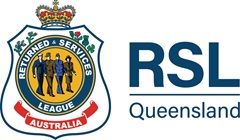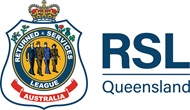
Recognising Australia’s courageous creatures
25 February 2024- History & commemoration
24 February is National Day for War Animals.
Learn how Australian War Animal Memorial Organisation honours our four-legged and feathered military heroes.
A life of animal allyship
Redlands RSL Sub Branch member and 2017 RSL ANZAC of the Year Nigel Allsopp has dedicated his 40-year career to the training, handling and welfare of animals.
“I started my career in the New Zealand Air Force as a dog handler and served for 15 years before working at Auckland Zoo as an elephant and sea lion trainer,” Nigel says.
“I was then offered a job as the supervisor of Currumbin Wildlife Sanctuary on the Gold Coast. Since moving back to Australia, I’ve also worked as an animal trainer at Sea World and Dubbo Zoo.”
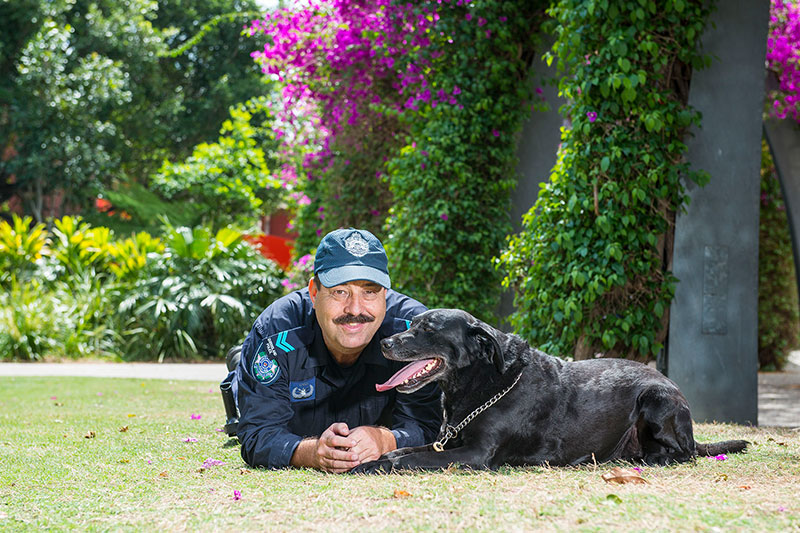
Founder of the Australian War Animal Memorial Organisation (AWAMO) Nigel Allsopp
Having missed his time in uniform, Nigel decided to pivot his career back to the military by joining the Royal Australian Air Force (RAAF) Reserves in 2000. A few years later, he joined the Queensland Police Service (QPS), where he remains employed today.
“I have spent 20 years all up [at QPS], including 15 years in the Queensland Police dog section,” Nigel says.
“I am currently a trainer at the Oxley Police Academy, but I spent my operational duties as a dog handler, primarily with explosive detection dogs. I am also a qualified mounted police officer and have taken equitation training in the USA.”
In addition to his impressive career, Nigel’s passion for animals drove him to establish the non-profit Australian War Animal Memorial Organisation (AWAMO) in 2003. He has also authored 14 books and has lectured as a subject matter expert at military academies in the UK and USA.
Helping creatures great and small
Throughout its history, AWAMO has been at the forefront of honouring millions of animals who have loyally served and given their lives alongside human comrades.
“AWAMO is the first organisation to recognise Australian military animals with a memorial. There were a couple of memorials honouring individual dogs but none honouring all species involved in war until we started because, quite rightly, people wanted to honour human beings,” Nigel explains.
“But nine million animals died in WWI alone, so it is important to realise that animals have served our nation. Australia itself would not be the country it is today without animals.”
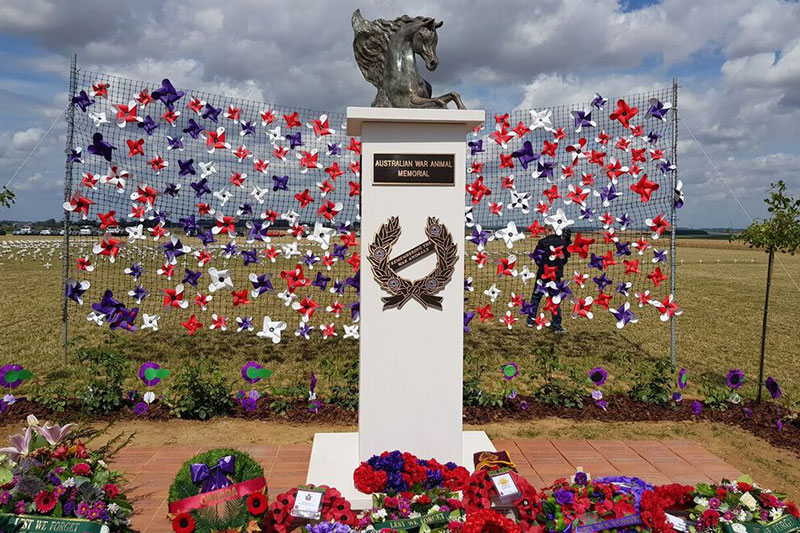
AWAMO established Australia’s first international war animal memorial in the town of Pozieres in France
In addition to establishing more than 50 animal memorials around Australia and overseas (including the first war animal memorial in Pozieres, France, on the Western Front), AWAMO has provided financial aid to retired veteran dogs, funded animal-based post-traumatic stress disorder (PTSD) programs for veterans and established the purple poppy animal remembrance appeal.
Nigel’s work as President has seen him twice on the frontline in Ukraine on animal rescue missions, and to the United Nations in Switzerland to lobby for the recognition of animals in the Geneva Convention. AWAMO’s work is not limited to Defence initiatives, though.
“We’re trying to educate the next generation,” Nigel says. “I have given my books on war animals to various schools, libraries and universities in Australia and New Zealand. We are now producing all my books in braille and audio, which I have donated for free.”
The organisation has also produced ‘scented gardens’ for two Australian special schools, so that visually impaired children can experience the joy of plants and animals.
“With the aid of school and horticultural staff, we’ve planted scented flowers around full-scale fibreglass resin animals. Each animal has a different scent and tactile element,” Nigel explains.
“It’s a multi-pronged response; the children learn about the animal, find it, smell it and touch it, which gives them some independence within their schoolgrounds. Every now and then we also take in real animals, which the kids can pet as well.”
How you can commemorate military service animals
Based on their work to date, it’s clear that AWAMO’s volunteers work tirelessly to raise awareness and appreciation for the countless horses, mules, camels, donkeys, cats, dogs and pigeons who have served their country. However, Nigel believes that there is always more work to be done.
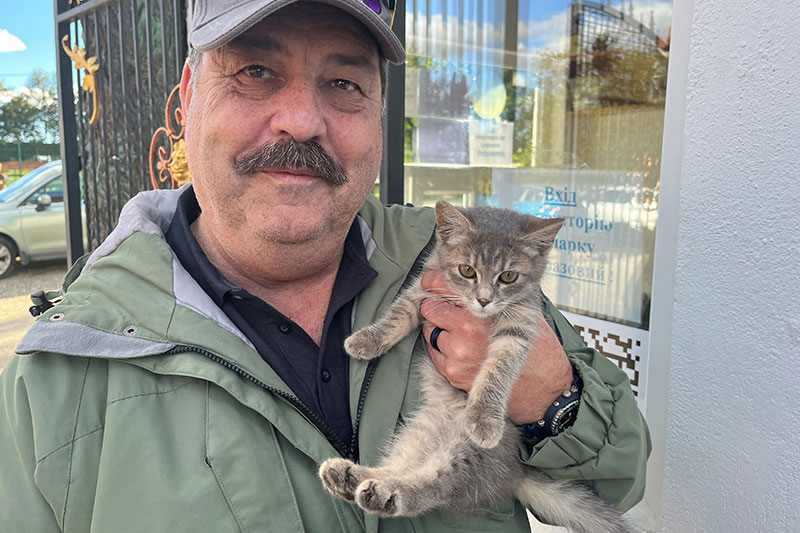
Nigel has travelled to Ukraine to assist animals impacted by the war
“The reactions to our work are all positive, but I never fail to go to an ANZAC Day service or discussion group where somebody says they didn’t know that animals served in the military,” Nigel says.
To help raise awareness for military service animals, AWAMO launched the purple poppy in 2009 as a symbol of the sacrifice paid by our four-legged and feathered diggers. Purple poppies are often worn in remembrance on 24 February for National Day for War Animals.
“While it’s not an official day, we want to promote 24 February more. Britain, New Zealand, France, Canada, Ukraine and the USA have taken it on, so it’s slowly getting recognised around the world,” Nigel says.
To support National Day for War Animals, consider buying and wearing a purple poppy. All proceeds go towards continuing AWAMO’s work.
Contact your local RSL Sub Branch about where to buy a purple poppy.
Want to stay informed? Subscribe today and get the latest news, services, events and more direct to your email inbox.
Related News
Loading
